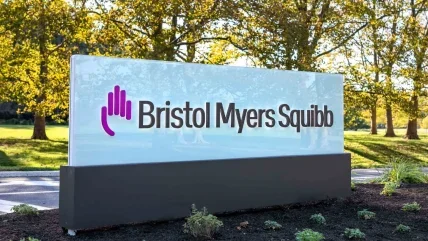
Bristol Myers Squibb (BMS) has secured accelerated approval from the US Food and Drug Administration (FDA) for Krazati (adagrasib) in combination with cetuximab to treat a type of colorectal cancer (CRC).
The FDA has approved the Krazati combination as a targeted treatment for adult patients with KRASG12C -mutated locally advanced or metastatic CRC.
The condition must be determined by an FDA-approved test. The approval is specifically for such patients who were previously administered with fluoropyrimidine-, oxaliplatin-, and irinotecan-based chemotherapy.
It was based on data from cohorts of the Phase 1/2 KRYSTAL-1 open-label study.
The early-stage trial assessed Krazati in combination with cetuximab in 94 patients with heavily treated KRASG12C mutation-positive CRC.
The study achieved its primary endpoint, showing a confirmed objective response rate (ORR) of 34% with all responses being partial responses.
The median duration of response (DOR), a secondary endpoint, was 5.8 months.
Bristol Myers Squibb US oncology and hematology senior vice president Wendy Bartie said: “Today’s approval of Krazati in CRC is the second in the US for this therapy and the first for BMS’ recently expanded oncology portfolio.
“This is an important milestone for BMS and the patients we serve as we deliver on our commitment to provide innovative medicines for cancer.
“We are proud to make Krazati – the first KRASG12C inhibitor to be FDA approved beyond non-small cell lung cancer – available to CRC patients, and look forward to further evaluating Krazati through our ongoing development programme.”
The continued approval for this indication may depend on confirming and description of clinical benefit in a confirmatory trial.
Krazati was originally developed by Mirati Therapeutics, which was acquired by Bristol Myers Squibb last year.
In 2022, the drug received accelerated approval to treat KRASG12C -mutated locally advanced or metastatic non-small cell lung cancer.
In a separate development, the European Medicines Agency (EMA) validated Bristol Myers Squibb’s application for subcutaneous use for Opdivo (nivolumab).
The new route of administration includes a new pharmaceutical form and a new strength across multiple previously approved adult solid tumour indications.






